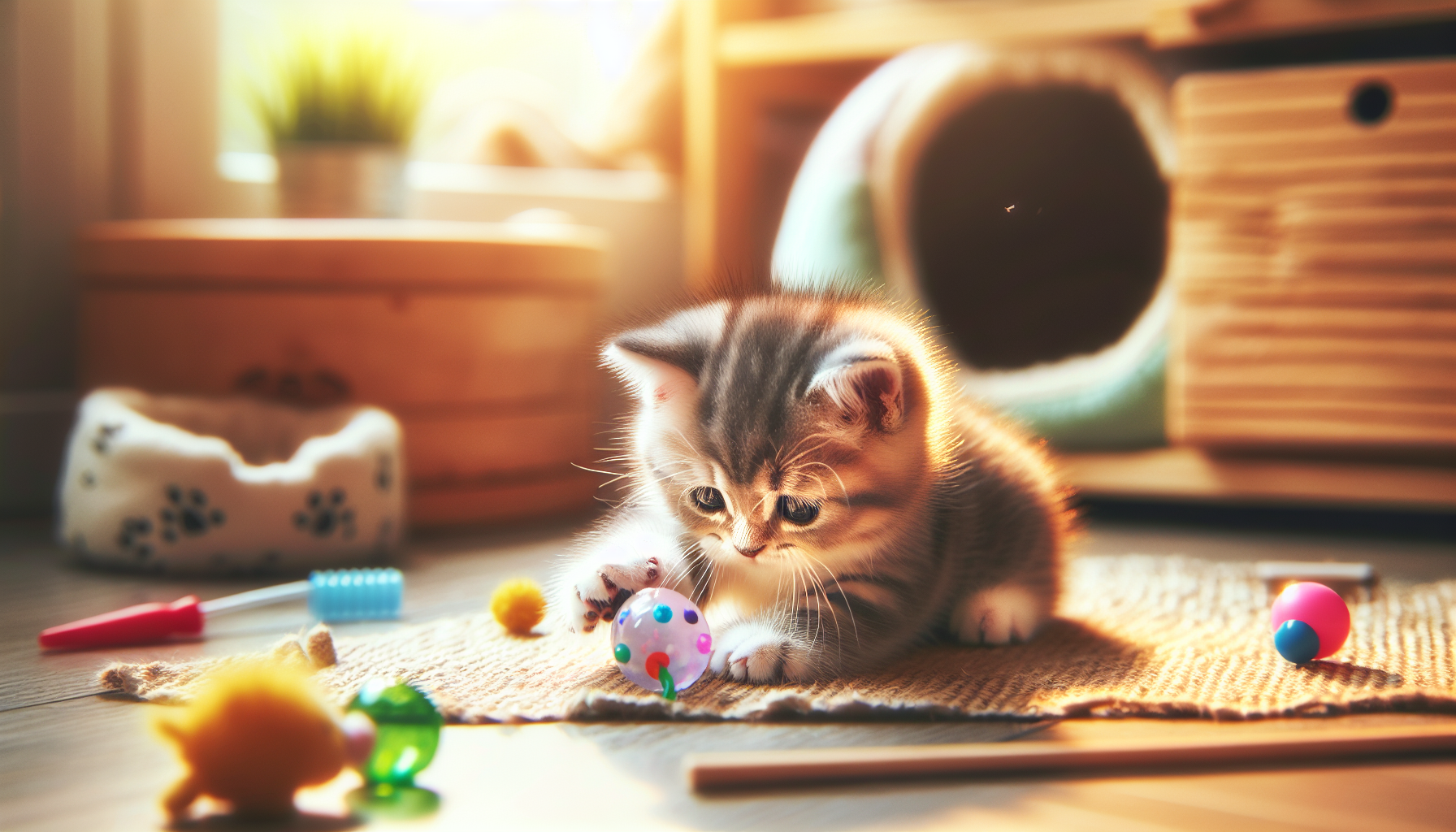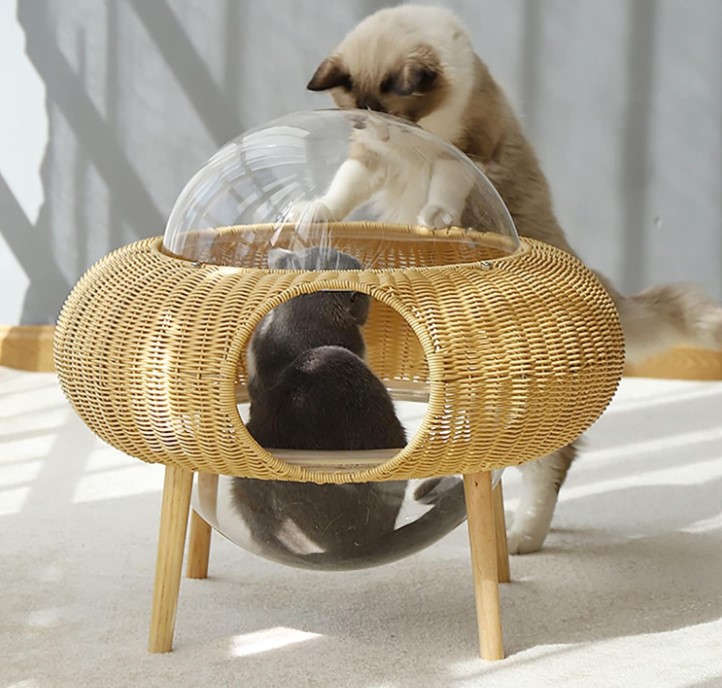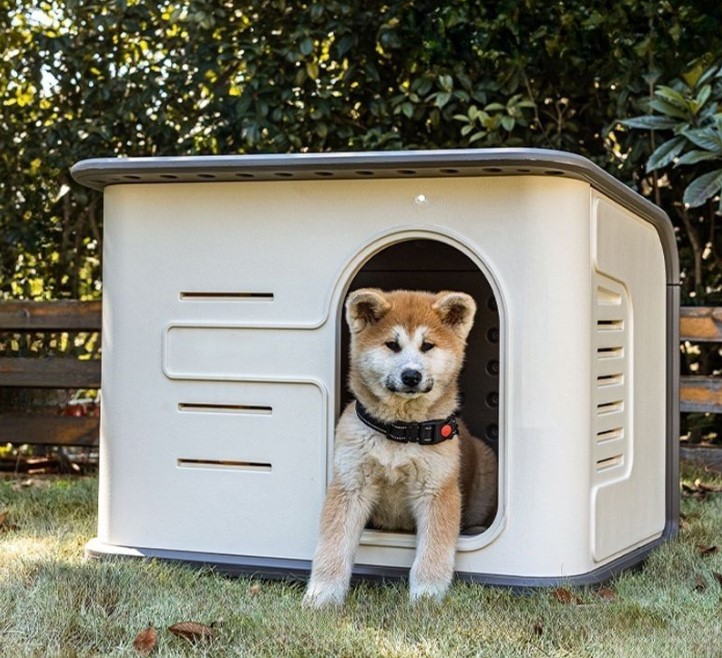A Comprehensive Guide to Caring for an Unplanned Kitten Adoption

Bringinging a new kitten into your home can be a thrilling experience, but what if it’s not something you had planned for? Perhaps a friend or family member couldn’t care for their kitten anymore, or you stumbled upon a litter of adorable kittens in need of a new home. Whatever the reason, adopting a kitten on short notice can be overwhelming, especially if you’re not prepared. In this article, we’ll guide you through the essentials of caring for a one-month-old kitten, from preparation and supplies to nutrition and health. We’ll also cover the importance of socialization and training, as well as provide valuable tips for a smooth transition and a happy, healthy kitten.
Adopting a kitten without prior planning requires flexibility, patience, and a willingness to learn. It’s essential to understand that kittens, especially those as young as one month old, require specific care and attention to thrive. By following the expert advice and guidance in this article, you’ll be well-equipped to provide the best possible care for your new furry friend.
Remember, adopting a kitten is a significant responsibility, but with the right mindset and preparation, it can also be an incredibly rewarding experience. So, let’s get started on this journey of caring for your one-month-old kitten, and discover the joys of raising a happy and healthy companion.
1. The Unplanned Kitten: Understanding Your Situation
Finding yourself with an unplanned kitten adoption can be a shock to the system. Perhaps you’re wondering how you ended up with a tiny ball of fluff in your home, or maybe you’re still reeling from the surprise. Whatever the circumstances, it’s essential to take a step back and assess the situation. The American Society for the Prevention of Cruelty to Animals (ASPCA) estimates that approximately 3.2 million cats enter animal shelters every year. Many of these cats are kittens, and they often find themselves in shelters due to unforeseen circumstances, such as owners moving away, allergies, or changes in work schedules.
It’s crucial to acknowledge that your situation is not unique, and many people have successfully navigated the challenges of unplanned kitten adoption. With the right mindset and preparation, you can provide a loving and nurturing environment for your new furry friend. It’s essential to understand that kittens, especially those as young as one month old, require specific care and attention to thrive. This means providing a safe and healthy environment, nutrition, and socialization to help them grow into confident and well-adjusted adult cats.
Before moving forward, take a moment to process your emotions and think about what you can realistically provide for your kitten. Consider factors like your lifestyle, living situation, and financial resources. By doing so, you’ll be better equipped to make informed decisions about your kitten’s care and ensure a smooth transition for both you and your new companion. Remember, with time, patience, and love, you can create a happy and healthy home for your unplanned kitten.
Why You Might End Up with a Kitten You Didn’t Plan For
According to the American Society for the Prevention of Cruelty to Animals (ASPCA), there are several common scenarios that lead to unplanned kitten adoption. One of the most common reasons is a sudden change in circumstances, such as a divorce, moving, or a new job that requires frequent travel. In these situations, the previous owner may be unable to care for the kitten, leaving them in need of a new home. Another scenario is when a friend or family member finds a litter of abandoned kittens and reaches out to you for help. Perhaps they’re unable to care for the kittens themselves, or they know you’re an animal lover and think you’d be willing to take them in.
The ASPCA also notes that some people may adopt a kitten on impulse, without fully considering the responsibilities involved. This can happen when visiting a shelter or pet store, and falling in love with a kitten’s adorable face and playful personality. While it’s understandable to want to rescue a kitten in need, it’s essential to remember that caring for a kitten requires a significant commitment of time, resources, and energy. Finally, some people may adopt a kitten as a result of a crisis, such as a natural disaster or a sudden loss in the family. In these situations, the emotional support of a kitten can be incredibly comforting, but it’s still important to consider the long-term implications of adopting a pet.
By understanding the common scenarios that lead to unplanned kitten adoption, you can better prepare yourself for the challenges and responsibilities that come with caring for a new kitten. Whether you’re a seasoned pet owner or a newcomer to the world of animal care, it’s essential to approach this journey with a clear head and a willingness to learn. With the right mindset and support, you can provide a happy and healthy home for your new kitten, even if you didn’t plan for it.
The Importance of Pre-Adoption Preparation
When it comes to adopting a kitten, preparation is key to a successful and stress-free transition for both you and your new furry friend. Even if you’re adopting a kitten on short notice, taking some time to prepare can make a huge difference in the long run. One of the most critical aspects of preparation is ensuring your home is kitten-proofed. This means removing any hazardous materials, securing toxic substances, and blocking off areas you don’t want your kitten to access. A little bit of preparation can prevent accidents and ensure a safe and healthy environment for your kitten.
Preparation also extends to gathering essential supplies, such as food, litter, and toys. Having these items on hand can help reduce stress and anxiety for both you and your kitten. Additionally, doing some research on kitten care and behavior can help you understand your kitten’s needs and provide the best possible care. This includes learning about nutrition, health, and socialization, as well as understanding the importance of regular veterinary check-ups and vaccinations.
By taking the time to prepare, you can set yourself and your kitten up for success. A well-prepared home and a knowledgeable caregiver can make a huge difference in a kitten’s development and well-being. Remember, even if you’re adopting a kitten on short notice, a little bit of preparation can go a long way in ensuring a happy and healthy relationship with your new furry friend.
2. Kitten Care 101: Essential Supplies and Preparations

Welcoming a new kitten into your home can be a thrilling experience, but it’s essential to ensure you’re prepared to provide the best possible care. Gathering essential supplies and making necessary preparations can help reduce stress and anxiety for both you and your kitten. When it comes to supplies, you’ll need the basics such as food, water, litter, and a litter box. You’ll also want to consider investing in a few comfort items like a cozy bed, toys, and scratching posts.
In addition to supplies, it’s crucial to prepare your home for your kitten’s arrival. This includes kitten-proofing your space by removing hazardous materials, securing toxic substances, and blocking off areas you don’t want your kitten to access. You’ll also want to set up a safe and comfortable space for your kitten to eat, sleep, and play. Consider setting up a designated area for litter and feeding, and make sure your kitten has access to fresh water and a clean living space.
By taking the time to prepare and gather essential supplies, you can set yourself and your kitten up for success. Remember, a well-prepared home and a knowledgeable caregiver can make a huge difference in a kitten’s development and well-being. With the right supplies and preparations, you can create a happy and healthy environment for your new furry friend to thrive.
The Must-Have Kitten Supplies for a Smooth Transition
Bringinging a new kitten into your home can be a thrilling experience, but it’s essential to ensure you have the right supplies to provide a smooth transition for your new furry friend. One of the most critical items to consider is food, and it’s crucial to choose a high-quality kitten food that meets your kitten’s nutritional needs. You’ll also want to invest in a few comfort items like a cozy bed, toys, and scratching posts to help your kitten feel at home.
Another essential item to consider is a litter box and litter, as well as a scoop and bags to keep your kitten’s living space clean. You’ll also want to invest in a few basic grooming tools like a brush, nail clippers, and shampoo to keep your kitten clean and healthy. Additionally, consider investing in a carrier or crate to help your kitten feel safe and secure during travel or when you’re not home.
Remember, the right supplies can make a huge difference in your kitten’s development and well-being. By investing in the essentials, you can create a happy and healthy environment for your kitten to thrive. Be sure to do your research and consult with your veterinarian to determine the best supplies for your kitten’s specific needs and age.
Preparing Your Home for a Kitten’s Arrival
Before bringing your new kitten home, it’s essential to prepare your space to ensure a safe and healthy environment for your new furry friend. Kitten-proofing your home is a crucial step in this process, and it involves removing hazards and creating a safe space for your kitten to explore and play. Start by removing any toxic substances, such as cleaning supplies or medications, from your kitten’s reach. You’ll also want to secure any loose wires or cords, and block off areas you don’t want your kitten to access, such as the kitchen counter or laundry room.
Another important step in preparing your home is to create a safe and comfortable space for your kitten to eat, sleep, and play. Consider setting up a designated area for litter and feeding, and make sure your kitten has access to fresh water and a clean living space. You’ll also want to provide plenty of toys and scratching posts to keep your kitten entertained and exercised. By taking the time to prepare your home, you can reduce the risk of accidents and ensure a smooth transition for your kitten.
Remember, kittens are naturally curious, and they’ll want to explore every nook and cranny of their new environment. By taking the time to kitten-proof your home, you can create a safe and healthy environment for your kitten to thrive. Be sure to supervise your kitten closely, especially in the early days, and be prepared to make adjustments as needed to ensure your kitten’s safety and well-being.
3. Caring for a One-Month-Old Kitten: Nutrition and Health
At one month old, kittens are still highly dependent on their caregivers for nutrition and health. It’s essential to understand their unique needs and provide the best care possible to ensure a healthy and happy kitten. Nutritionally, kittens at this age require a high-quality, nutrient-rich formula that’s specifically designed for their developmental stage. You’ll also want to ensure your kitten is feeding correctly, as poor feeding habits can lead to a range of health issues.
In terms of health, one-month-old kittens are still vulnerable to a range of illnesses and infections. It’s crucial to monitor your kitten’s health closely, looking for signs of illness such as vomiting, diarrhea, or lethargy. You’ll also want to ensure your kitten receives regular veterinary check-ups and vaccinations to protect against diseases. Additionally, keeping your kitten’s living space clean and hygienic can help prevent the spread of infection.
By providing the right nutrition and health care, you can help your kitten thrive during this critical stage of development. Remember, every kitten is different, and it’s essential to tailor your care approach to meet your kitten’s individual needs. Be sure to consult with your veterinarian regularly for guidance and advice on caring for your one-month-old kitten.
The Ideal Diet for a One-Month-Old Kitten
At one month old, kittens require a diet rich in protein, fat, and other essential nutrients to support their rapid growth and development. A high-quality kitten formula is crucial, as it provides the necessary nutrition for optimal health and development. Look for a formula that is specifically designed for kittens, and contains protein sources such as chicken, fish, or beef, as well as essential fatty acids and vitamins.
Feeding frequency is also critical at this stage. One-month-old kittens should be fed every 3-4 hours, or 8-10 times per day. This may seem frequent, but it’s essential to support their rapid growth and development. As your kitten grows, you can gradually increase the time between feedings, but be sure to monitor their weight and overall health to ensure they’re receiving enough nutrition.
It’s also important to note that kittens should not be fed cow’s milk, as it lacks the necessary nutrients and can cause digestive issues. Instead, stick to a high-quality kitten formula, and consult with your veterinarian if you have any concerns or questions about your kitten’s diet. By providing the right nutrition, you can help your kitten thrive and develop a strong foundation for a healthy and happy life.
Common Health Issues in One-Month-Old Kittens
One-month-old kittens are vulnerable to a range of health issues, and it’s essential to recognize the signs of illness to provide prompt veterinary care. One of the most common health concerns in young kittens is upper respiratory infections, which can cause symptoms such as sneezing, coughing, and discharge from the eyes and nose. Other potential health issues include parasites, such as fleas, ticks, and worms, as well as infections, such as conjunctivitis and pneumonia.
It’s crucial to monitor your kitten’s health closely, looking for signs of illness such as vomiting, diarrhea, lethargy, or loss of appetite. If you notice any of these symptoms, seek veterinary care immediately. Your veterinarian can provide a diagnosis and recommend appropriate treatment. Additionally, regular veterinary check-ups can help prevent health issues and detect any potential problems early on.
Remember, prompt veterinary care is essential for treating health issues in young kittens. If you’re unsure about your kitten’s health or have concerns about their behavior, don’t hesitate to reach out to your veterinarian. By staying vigilant and seeking prompt care, you can help your kitten thrive and grow into a healthy and happy adult.
4. Socialization and Training: Building a Strong Bond
Socialization and training are crucial for building a strong bond with your kitten and helping them develop into a confident and well-behaved adult. Socialization is the process of exposing your kitten to new people, environments, and experiences, which helps them become confident and calm in new situations. This is especially important for kittens, as they are most receptive to new experiences between 2-14 months of age.
Proper training is also essential for a well-behaved kitten. Positive reinforcement techniques, such as rewarding desired behaviors with treats and praise, are effective for teaching kittens basic commands like ‘sit’ and ‘stay’. Training also helps to establish a strong bond between you and your kitten, as it relies on communication and trust.
By prioritizing socialization and training, you can help your kitten develop into a happy and well-adjusted adult. A well-socialized kitten is more likely to be confident and calm in new situations, and less likely to develop behavioral problems like fear aggression or anxiety. With patience, consistency, and positive reinforcement, you can help your kitten grow into a loving and loyal companion.
The Critical Period of Socialization for Kittens
The first 16 weeks of a kitten’s life are a critical period for socialization, during which they are most receptive to new experiences and stimuli. During this time, kittens are learning about their environment, people, and other animals, and are forming associations that will last a lifetime. It’s essential to provide kittens with a wide range of positive experiences during this period, as it can have a lasting impact on their behavior and temperament.
Socialization during this period can help kittens develop confidence, reduce anxiety and fear, and improve their ability to adapt to new situations. It’s also an ideal time to introduce kittens to different people, environments, and activities, such as playing with toys, climbing, and interacting with other animals. By providing a rich and varied environment, you can help your kitten develop into a well-adjusted and confident adult.
Remember, the critical period of socialization is a short window of opportunity, and it’s essential to make the most of it. By prioritizing socialization and providing a nurturing environment, you can help your kitten develop a strong foundation for a happy and healthy life. Don’t miss this opportunity to shape your kitten’s personality and behavior, and provide them with the tools they need to thrive in their new environment.
Positive Reinforcement Training for Your Kitten
Positive reinforcement training is a powerful way to encourage good behavior and prevent bad habits in your kitten. This method focuses on rewarding desired behaviors, rather than punishing undesired ones. By using positive reinforcement, you can help your kitten develop good habits and a strong bond with you.
To get started with positive reinforcement training, you’ll need some tasty treats and a clear understanding of what behaviors you want to encourage. For example, if you want to teach your kitten to sit, hold a treat above their head and slowly move it backwards and upwards. As they follow the treat with their nose, their bottom will lower into a sitting position. The moment they sit, give them the treat and praise them. Repeat this process several times, and your kitten will soon learn to associate the behavior with the reward.
Remember to be patient and consistent when using positive reinforcement training. It may take some time for your kitten to learn new behaviors, but with persistence and positive reinforcement, they’ll get there eventually. And by focusing on rewarding good behavior, you’ll help your kitten develop a strong foundation for a happy and healthy life. So, get started with positive reinforcement training today, and watch your kitten thrive!
5. Conclusion: Turning an Unexpected Adoption into a Lifelong Bond
Adopting a kitten unexpectedly can be a shocking experience, but with the right approach, it can also be a life-changing opportunity. By following the tips and advice outlined in this article, you can turn an unexpected adoption into a lifelong bond with your new furry friend. Remember to stay calm, patient, and flexible, and to prioritize your kitten’s needs and well-being.
As you navigate the ups and downs of kitten parenthood, keep in mind that every moment, both big and small, is an opportunity to build a strong bond with your kitten. From playtime to cuddles, and from training to veterinary visits, every interaction is a chance to show your kitten love, care, and attention. By doing so, you’ll create a lifelong bond that will bring joy and companionship to both you and your kitten.
In the end, adopting a kitten unexpectedly may not have been part of your plan, but it can still be a wonderful opportunity to add love, laughter, and joy to your life. So, embrace the unexpected, and make the most of this new chapter in your life. With patience, love, and care, you can turn an unexpected adoption into a lifelong bond with your new furry friend.
The Benefits of Adopting a Kitten Without Prior Planning
Adopting a kitten without prior planning can be a daunting experience, but it also presents a unique opportunity for growth and learning. Without the time to thoroughly research and prepare, you may find yourself stepping out of your comfort zone and adapting to new circumstances. This can be a valuable learning experience, teaching you to be more flexible and resilient in the face of unexpected challenges.
Moreover, adopting a kitten on short notice can also be a chance to re-evaluate your priorities and values. Caring for a kitten requires a significant investment of time and resources, and may prompt you to reassess your lifestyle and habits. This can lead to positive changes, such as a greater sense of responsibility and compassion, and a deeper appreciation for the joys of pet ownership.
In addition, adopting a kitten without prior planning can also be a catalyst for personal growth and self-discovery. As you navigate the challenges of caring for a new kitten, you may discover hidden strengths and abilities, and develop a greater sense of confidence and self-awareness. So, while adopting a kitten on short notice may not have been part of your plan, it can still be a rewarding and enriching experience that brings many benefits to your life.
Tips for a Smooth Transition and a Happy Kitten
Ensuring a smooth transition and a happy, healthy kitten requires careful planning and attention to detail. First, create a safe and welcoming environment for your kitten by providing a comfortable place to sleep, eat, and play. Make sure to kitten-proof your home by removing any hazardous materials or objects that could harm your kitten.
Next, establish a routine for feeding, playtime, and veterinary care to provide a sense of stability and structure for your kitten. This will also help you bond with your kitten and create a strong attachment. Additionally, provide plenty of love, attention, and socialization to help your kitten develop into a confident and well-adjusted adult.
Finally, be prepared for the unexpected and remain flexible and patient. Adopting a kitten is a big responsibility, and it’s normal to encounter setbacks or challenges along the way. By following these expert tips, you can ensure a smooth transition and a happy, healthy kitten that will bring joy and companionship to your life. Remember, every kitten is unique, so be prepared to adapt and adjust to your kitten’s individual needs and personality.
What are the essential supplies I need to get for my new kitten?
The essential supplies you’ll need to get for your new kitten include food, water, litter, a litter box, a comfortable place to sleep, toys, and a scratching post. You’ll also need to consider getting a carrier, nail clippers, and a brush for grooming.
How often should I feed my kitten?
Kittens need to be fed frequently, especially during the first few months. You should feed your kitten 3-4 times a day, and make sure to provide fresh water at all times. As your kitten grows, you can gradually switch to twice a day.
What are some common health issues in kittens?
Some common health issues in kittens include upper respiratory infections, parasites, and fleas. You should also be aware of signs of illness such as vomiting, diarrhea, and lethargy, and seek veterinary care immediately if you notice any of these symptoms.
How do I socialize my kitten?
Socializing your kitten is crucial for their development. You can socialize your kitten by exposing them to new people, places, and experiences, and by providing plenty of love, attention, and playtime. This will help your kitten become confident and well-adjusted.
What are some tips for kitten-proofing my home?
Kitten-proofing your home is essential to ensure your kitten’s safety. Some tips include removing hazardous materials, securing toxic substances, and blocking access to electrical cords and small objects that can be swallowed. You should also consider securing your trash cans and toilet lids, and blocking access to areas you don’t want your kitten to enter.




